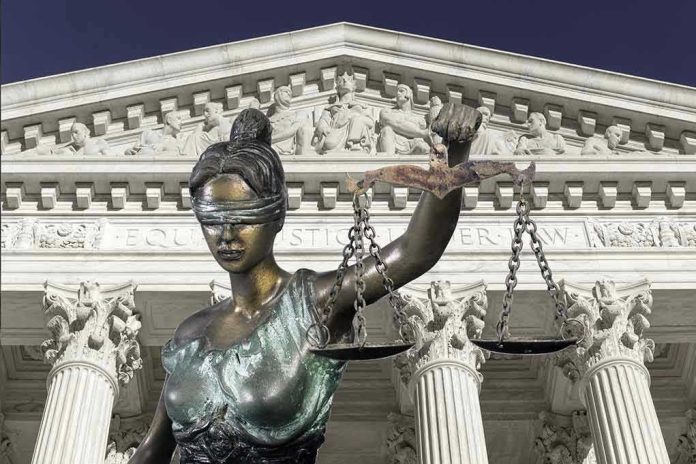
A new political showdown over Epstein-linked donations ignites partisan tensions, spotlighting transparency and accountability.
Story Highlights
- GOP Congressman accuses Democrats of accepting Epstein “blood money.”
- Congress passes Epstein Files Transparency Act, pushing for disclosure.
- Explosive exchange aired live, amplifying political divisions.
- Debate over campaign finance transparency intensifies.
Congressional Debate Over Epstein Donations
In November 2025, a fiery exchange between a Republican congressman and a CNN host brought the issue of Epstein-linked donations to the forefront. The congressman accused Democratic politicians of accepting “blood money” from Jeffrey Epstein, a financier with a notorious past.
This confrontation underscores the escalating tensions over the integrity of political contributions and the necessity for transparency in campaign funding. The incident has intensified the partisan divide, with both parties leveraging Epstein’s legacy to question each other’s credibility.
The debate gained momentum as Democratic Rep. Jasmine Crockett named several politicians, from both parties, allegedly connected to Epstein donations. This public naming coincided with legislative efforts to increase transparency in political donations.
The Senate recently passed the Epstein Files Transparency Act, following near-unanimous approval in the House. This legislation mandates the release of documents related to Epstein’s activities, aiming to shed light on his network and its political ties.
Media’s Role in Amplifying the Controversy
The televised confrontation between the GOP congressman and the CNN host played a pivotal role in amplifying the controversy. Media platforms have become battlegrounds for political discourse, where accusations and defenses are broadcasted to a wide audience.
This live exchange has not only highlighted the existing partisan rift but also raised public awareness about the complexities of campaign finance transparency. As the debate unfolds, media scrutiny continues to shape public perception and influence the narrative surrounding Epstein-linked donations.
Amidst this media frenzy, EPA Administrator Lee Zeldin clarified that the “Jeffrey Epstein” linked to his donations was a different individual, highlighting the confusion and need for due diligence in verifying donor identities. This clarification points to the broader issue of ensuring accuracy in campaign finance records and the potential reputational damage stemming from misattributions.
Implications for Political Accountability and Transparency
The passing of the Epstein Files Transparency Act marks a significant step toward greater political accountability. By mandating the release of Epstein-related documents, Congress aims to restore public trust and ensure transparency in political contributions.
However, the debate over Epstein-linked donations continues to fuel partisan conflict, with each side attempting to implicate the other in questionable dealings. The controversy also underscores the importance of vetting political donations and maintaining robust disclosure requirements to prevent future scandals.
As the documents are released, potential new revelations could reshape campaign finance norms and carry long-term implications for the political landscape. The ongoing scrutiny may lead to reforms in how political donations are vetted and disclosed, fostering a more transparent and accountable political system.
Sources:
Epstein Files Vote 2025 – CBS News







